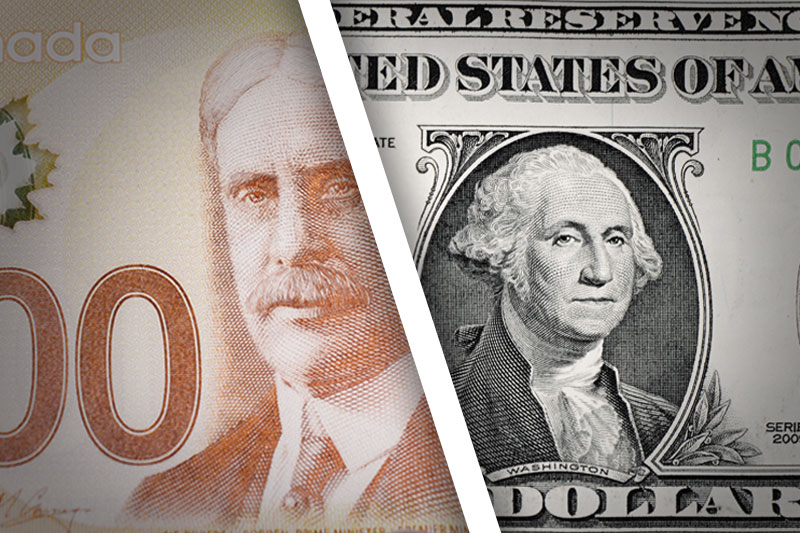Investing.com - The U.S. dollar moved higher against the Canadian dollar on Monday amid optimism that U.S. data due for release later in the week would prompt the Federal Reserve to start scaling back its stimulus program.
USD/CAD hit 1.0316 during early U.S. trade, the session high; the pair subsequently consolidated at 1.0302, gaining 0.13%.
The pair was likely to find support at 1.0273, Friday’s low and resistance at 1.0334, the high of July 31.
The U.S. dollar firmed up amid expectations that strong U.S. retail sales data for July, due for release on Tuesday, would underline the view that the economic recovery is on track.
The greenback came under broad selling pressure last week after the latest U.S. jobs report on August 2 showed that the economy added fewer jobs than expected in July. The disappointing data saw investors reassess expectations for when the U.S. central bank would start to taper its asset purchase program.
Concerns over the outlook for the Canadian economy lingered after official data on Friday showed that the economy unexpectedly shed jobs July and the unemployment rate ticked higher.
Statistics Canada said the economy lost 39,400 jobs last month, as public sector employment declined, while the unemployment rate rose to 7.2% from 7.1% in June. Economists had expected the economy to gain 10,000 jobs in July and the unemployment rate to remain unchanged.
The loonie, as the Canadian dollar is also known, was higher against the euro, with EUR/CAD down 0.28% to 1.3689.
USD/CAD hit 1.0316 during early U.S. trade, the session high; the pair subsequently consolidated at 1.0302, gaining 0.13%.
The pair was likely to find support at 1.0273, Friday’s low and resistance at 1.0334, the high of July 31.
The U.S. dollar firmed up amid expectations that strong U.S. retail sales data for July, due for release on Tuesday, would underline the view that the economic recovery is on track.
The greenback came under broad selling pressure last week after the latest U.S. jobs report on August 2 showed that the economy added fewer jobs than expected in July. The disappointing data saw investors reassess expectations for when the U.S. central bank would start to taper its asset purchase program.
Concerns over the outlook for the Canadian economy lingered after official data on Friday showed that the economy unexpectedly shed jobs July and the unemployment rate ticked higher.
Statistics Canada said the economy lost 39,400 jobs last month, as public sector employment declined, while the unemployment rate rose to 7.2% from 7.1% in June. Economists had expected the economy to gain 10,000 jobs in July and the unemployment rate to remain unchanged.
The loonie, as the Canadian dollar is also known, was higher against the euro, with EUR/CAD down 0.28% to 1.3689.
